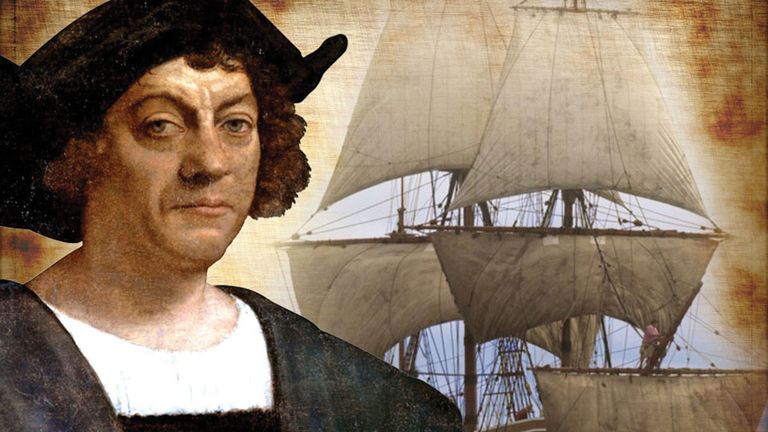
Source
Columbus, in an attempt to find a way from Europe to the East, accidentally encountered the Americas which made him more influential in world history, beyond his own expectations. His discovery is at once a crown of exploration and colonization of the New World and at the same time an important milestone in history. Columbus was like opening the door for Europeans on two continents for new settlements, spreading the population and providing a source of mineral wealth and the contents of the earth which in turn changed the face of Europe. At the same time, his discovery also resulted in the destruction of Indian culture. In the long term, this discovery gave birth to a new nation on the continent of the Western hemisphere, which very quickly differentiated itself from the Indians as the original inhabitants. As a result, Columbus brought great changes to the nations of the Old World.
The outline of the story of Columbus is not a new problem. He was born in Genoa, Italy, in 1451. When he grew up, he became a ship captain and an agile navigator. Finally, Columbus was convinced that it was possible to find a more practical route to Asia in the east by sailing westward across the Atlantic Ocean and he diligently pioneered his determination. Of course this great intention will not be realized without sufficient funds. It was for this reason that Columbus persuaded Queen Isabella I to provide a budget for his experimental expedition.
His ship anchored in Spanish port on August 3, 1492. First anchored in the Canary Islands off the coast of Africa. Dismantled the Canary Islands on 6 September and sailed westward. A voyage that is not playing long, so it is not strange if the crew was horrified and wanted to go back. Columbus? Not! The journey must be continued, once the sail is developed, it cannot be rolled. And the date of October 2, 1492 like a strand of green silk of the land appeared in the bow.
Columbus' return to Spain the following March from that formidable exploration was greeted with great reverence. After that he made a series of voyages across the Atlantic in the hope of setting foot in China and Japan. But in vain! Columbus remained adamant in his mind that he had found his way to East Asia long before anyone else knew.
Queen Isabella promised Columbus the governorship of any island she met. However, as administrator he was so incompetent that he was dismissed from his post and sent back to Spain with his hands shackled. However, when he arrived in Spain he was released but was never given another position. Rumor has it that Columbus died in poverty without any funds. When he died in 1506 -- another news -- there was also a small fortune.
Clearly, Columbus' first voyage was a revolutionary change for European history, and had an even greater influence on the European continent. School children all memorize the year 1492 is an important year. Even so, there are still many who object to placing the name Columbus in the order of this list of books.
One objection is that it was not Columbus who was the first European to discover the New World. Leif Ericson, a Viking sailor, centuries before Columbus had set foot on the Americas and it is safe to believe that several other Europeans had also crossed the Atlantic Ocean in the time between Leif Ericson and Columbus.
From a historical point of view, Leif Ericson is not an important figure. The things concerning his inventions have never been widely spread, nor have they left any changes either in America or Europe. On the other hand, news of Columbus' discovery of America spread like lightning throughout Europe. It was only a few years after Columbus' return, and as a direct result of his discoveries, that many additional expeditions arrived in the New World and conquest and colonization began.
Like the other characters in this book, Columbus is easily disturbed by various comments as if what he would do other people too if Columbus had never lived in the world. Europe of the 15th century AD was in a state of confusion and turmoil: the world of trade was developing, exploration of new areas was inevitable. The Portuguese were, in fact, very active in looking for a new route to the East, at the decisive moment before Columbus.
It is quite possible that America was discovered sooner or later by Europeans; it's even possible that if there was a delay, it wouldn't be that long. But the next development would be very different if America was discovered -- say in 1510 -- by a French or English expedition instead of in 1492 by Columbus. Under any pretext, it was actually Columbus who discovered the American continent.
A third possible objection is that, even before Columbus's voyage, many 15th century Europeans were aware that the earth is spherical in shape. This theory had been put forward by Greek philosophers centuries before, and the unshakable justification of Aristotle's hypothesis was enough to convince European scholars in the 1400s. Meanwhile, Columbus himself is not famous for showing that the earth is round. (At least, he didn't manage to do it). He is famous for the discovery of the New World, which neither 15th century Europeans nor Aristotle knew of the American continent.
Columbus's character was not fully admired. He is known to be miserly. This trait caused him to have difficulty obtaining financial support from Queen Isabella because Columbus was too greedy when he made a bargain. Also -- though it would be inappropriate to accuse him by today's ethical standards -- he treated the Indians with extreme cruelty. Therefore, this book list is not made up of the wisest people in history, but the most influential people, and in this framework Columbus ranks almost at the top.
Columbus always claimed that the conversion of unbelievers was one of the reasons for his explorations, and he became increasingly religious in his later years. Perhaps with the help of his son Diego and his friend, the Carthusian monk Gaspar Gorricio, Columbus produced two books during his later years: a Book of Privileges, which details and documents the awards of the Spanish Crown to which he believed and he was entitled, and the Book of Prophecies, where passages from the Bible are used to place his achievements as an explorer in the context of Christian eschatology.
In his later years, Columbus demanded that the Crown of Castile give him one-tenth of all the wealth and trade goods produced by the new lands, as provided for in the Capitulation of Santa Fe. Since he had been relieved of his duties as governor, the Crown did not feel bound by the contract and his demands were rejected. After his death, his heirs sued the Crown for a portion of the profits from trade with America, as well as other prizes. This led to a protracted series of legal disputes known as pleitos colombinos ("Colombian lawsuits").
During a violent storm on his first return journey, Columbus, then 41 years old, suffered an attack of what was then believed to be gout. In the years that followed, he was plagued with what was thought to be influenza and other fevers, bleeding from the eyes, temporary blindness and prolonged attacks of gout. The attacks increased in duration and severity, sometimes leaving Columbus bedridden for months at a time, and culminating in his death 14 years later.
Based on Columbus' lifestyle and the symptoms described, some modern commentators suspect that he had reactive arthritis, not gout. Reactive arthritis is joint inflammation caused by intestinal bacterial infection or after contracting certain sexually transmitted diseases (especially chlamydia or gonorrhea). In 2006, Frank C. Arnett, a medical doctor, and historian Charles Merrill, published their paper in The American Journal of the Medical Sciences proposing that Columbus had a reactive form of arthritis; Merrill made the case in the same paper that Columbus was a Catalan son and his mother was probably a member of a prominent converso (Jewish convert) family. "It appears [Columbus] acquired reactive arthritis from food poisoning on one of his sea voyages due to poor sanitation and improper food preparation," said Arnett, a rheumatologist and professor of internal medicine, pathology and laboratory medicine at the University of Texas. Medical School in Houston.
Some historians such as H. Micheal Tarver and Emily Slape, as well as medical doctors such as Arnett and Antonio Rodríguez Cuartero, believe that Columbus had such a form of reactive arthritis, but according to other authorities, this is "speculative", or "highly speculative".
After his arrival to Sanlúcar from his fourth voyage (and the death of Queen Isabella), an ailing Columbus settled in Seville in April 1505. He stubbornly continued to plead with the Crown to defend his personal rights and that of his family. He moved to Segovia (where the palace is located) with a mule in early 1506, and, on the occasion of King Ferdinand's marriage to Germaine of Foix in Valladolid, Spain, in March 1506, Columbus moved to the city to defend his demands. On May 20, 1506, at the age of 54, Columbus died in Valladolid.
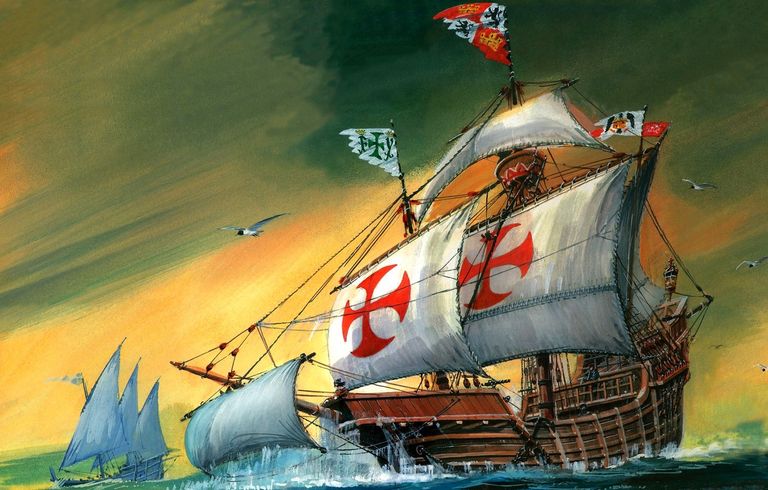
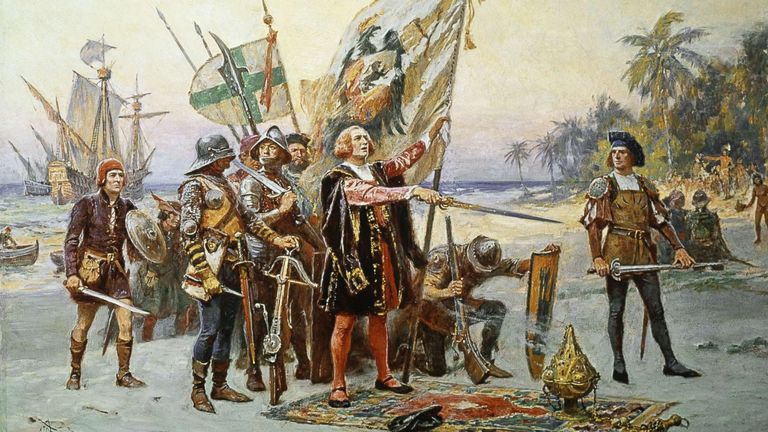
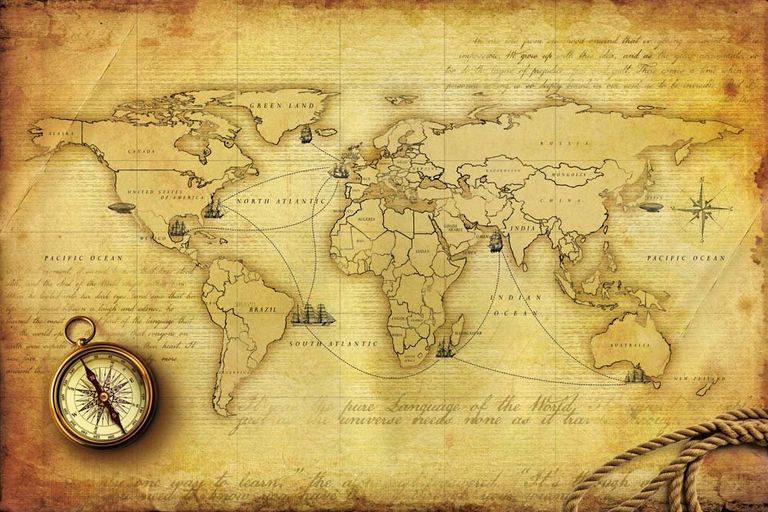
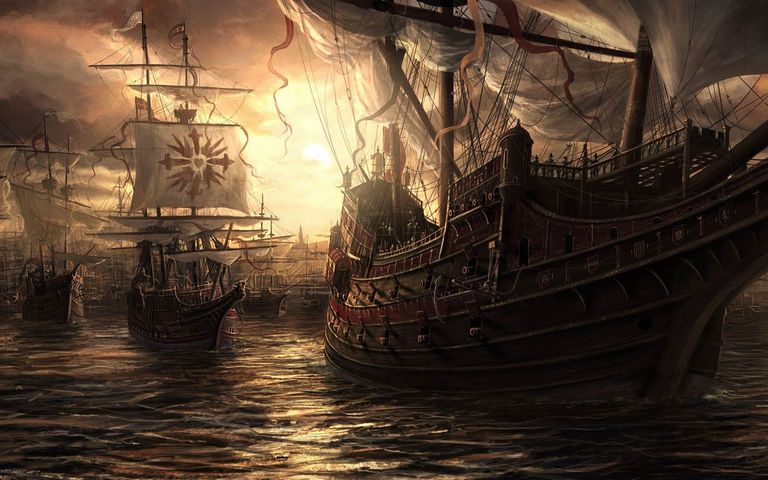
Do vote @Blurt.Live as your Witness
Posted from https://blurt.live